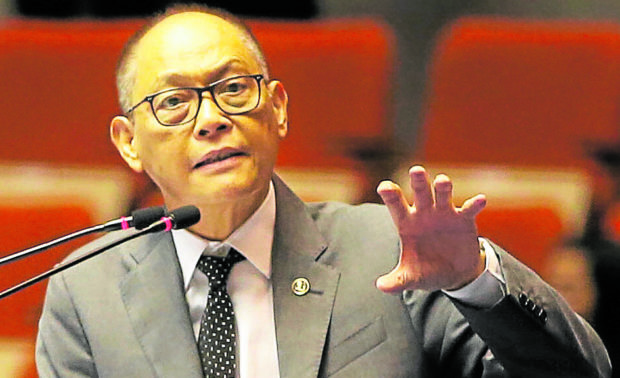Perks await banks backing ‘green’ projects
Banks that will lend to “green” and economic sustainability projects may be extended perks by the Bangko Sentral ng Pilipinas (BSP) in line with the government’s push for sustainable finance.
“We are now looking at the potential use of preferential rediscount rates or provision of higher loan values to enable banks to extend green loans or finance sustainable investments,” BSP Governor Benjamin Diokno said in a statement on Monday.
“The BSP is carefully evaluating these potential incentives so as not to create any unintended consequences. Nevertheless, we have initially proposed the inclusion of sustainable finance as a form of compliance with the mandatory credit to the agriculture sector,” Diokno added, referring to Republic Act No. 10000, or the Agri-Agra Reform Credit Act of 2009. The law mandated banks to set aside 15 percent of their total loanable funds to the agriculture sector, but compliance had been low such that the BSP was pushing for amendments to include alternative ways to comply.
The government last week made public the guidelines of its sustainable finance framework. Diokno said the grant of regulatory incentives would be under the framework’s third phase.
“Under this framework, we expect banks to progressively increase their loan allocations for green or sustainable projects as part of their set strategic environmental and social objectives,” Diokno said.
The BSP and the Department of Finance (DOF) spearhead the mainstreaming of sustainable finance to fill the funding gap for programs and projects aimed at fighting climate change and promoting inclusive growth.
The government itself had been eyeing to issue green, social or sustainability bonds and other debt instruments in offshore capital markets.
Proceeds from sustainable financing instruments can finance social expenditures such as education and healthcare for the poor, people with disabilities (PWDs) and unemployed; basic infrastructure in rural areas; food security for farmers and disadvantaged populations; support to micro, small and medium enterprises (MSMEs); job creation; social assistance like conditional and unconditional cash transfers; as well as low-cost and socialized housing.
Amid the prolonged pandemic, this financing may also be tapped for COVID-19 response.
Green expenditures were also eligible from sustainable fund-raising, including projects promoting clean infrastructure, climate change adaptation, renewable energy, and environmentally sustainable management of living natural resources and land use.
The Philippines had ambitiously committed to slash greenhouse gas emissions by 75 percent in the next 10 years under the Paris Agreement.
Programs in line with the Philippines’ 2030 commitments under the United Nations’ (UN) sustainable development goals (SDGs) will also be funded through this financing scheme.
The achievement of targets under the medium-term Philippine development plan (PDP) and public investment program (PIP) aimed at infrastructure development would also be supported by the sustainable finance framework.

